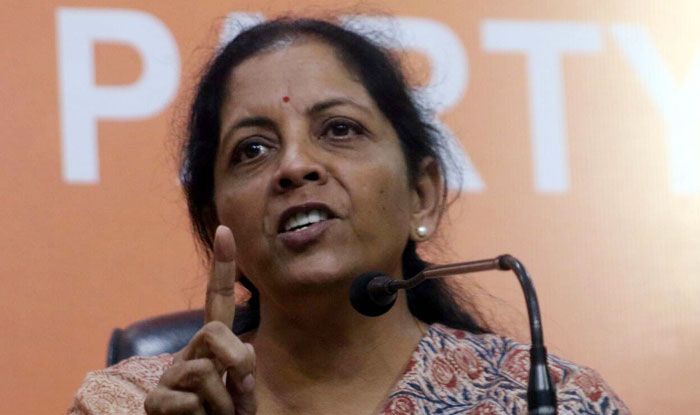
Economic Survey 2019-20 Tabled in Parliament, Sees Pick up in Growth
For the current fiscal, it projected a GDP growth of 5 per cent, the lowest in 11 years, and worsening job prospects.
The Economic Survey 2019-20 was tabled in Parliament by Finance Minister Nirmala Sitharaman on January 31, 2020 ahead of the presentation of the Union Budget 2020-21 on February 1. The survey projected revival of economic growth to 6-6.5 per cent in the next fiscal beginning April 1 but suggested the government to relax the budget deficit target to boost growth from a decade low.
Related Stories
- Rail Budget 2020: Railways Approaches Finance Ministry to Relieve it of Pension Burden
- Rail Budget 2020: Ensure no Fare Hike in Luggage Passes, Say Dabbawalas to Government
- Slowdown Woes: Union Budget 2020 to be Presented in Challenging Circumstances
Facing the worst economic slowdown since the global financial crisis of 2008-09, the Survey called for boosting manufacturing with ‘assemble in India for the world’ concept so as to boost job creation. For the current fiscal, it projected a GDP growth of 5 per cent, the lowest in 11 years, and worsening job prospects.
Following are the highlights of the Economic Survey 2019-20 tabled in Parliament on Friday:
* GDP growth pegged at 6-6.5 per cent in the fiscal year starting April 1, up from 5 per cent in current fiscal
* Fiscal deficit target for current fiscal may need to be relaxed to revive growth
* Uptick in growth projected in the second half of current fiscal based on 10 factors including higher FDI flows, build-up of demand pressure, positive GST revenue growth
* Survey asks government to deliver expeditiously on reforms to revive growth
* Ethical wealth creation key to India becoming USD 5 trillion economy by 2025
* Share of formal employment increased from 17.9 per cent in 2011 -12 to 22.8 per cent in 2017-18 reflecting formalisation in the economy
* Theme of Survey is wealth creation, promotion of pro-business policies, strengthening of trust in the economy
* To achieve GDP of USD 5 trillion by 2024-25, India needs to spend about USD 1.4 trillion over these years on infrastructure
* 2.62 crore new jobs created in rural, urban areas between 2011-12 and 2017-18 among regular wage/salaried employees
* 8 per cent increase in regular employment of women in 2017-18 over 2011-12
* Excessive government intervention in markets, especially when the market can do the job of enhancing citizens welfare perfectly well, stifles economic freedom
* Debt waivers disrupt the credit culture, reduces formal credit to same farmers
* Suggests government to systematically examine areas where it needlessly intervenes and undermines markets
* Calls for improving governance in public sector banks, more disclosures to build trust
* Calls for measures to make it easier to start a new business, register property, pay taxes, enforce contracts
* Easing of crude prices lowers current account deficit; imports contract more sharply than exports in the first half of current fiscal
* Declining inflation from 3.2 per cent in April 2019 to 2.6 per cent in December 2019, reflecting weakening demand pressure in the economy
* GST collections grew by 4.1 per cent for the centre during April-November 2019
For breaking news and live news updates, like us on Facebook or follow us on Twitter and Instagram. Read more on Business Latest News on India.com.
Comments - Join the Discussion